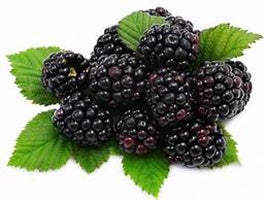Master Gardeners: Ancient medicinal qualities of raspberries and blackberries
Published 7:49 am Saturday, October 3, 2020
|
Getting your Trinity Audio player ready...
|
 Adapted from Urban Ag News Creating Change by Sharing Science online newsletter
Adapted from Urban Ag News Creating Change by Sharing Science online newsletter
Raspberries and blackberries are among the fastest growing fruit categories in the U.S. in the last 5 years according to analysts at RaboResearch Food & Agribusiness. These are a great choice for people who want a different texture from strawberries or blueberries but still want to eat berries high in phytonutrients. While raspberry production in the U.S. is predominantly located in California, the south-eastern states of Georgia, North Carolina in addition to Texas and Ohio have superb blackberry growing climates.
Raspberries (Rubus idaeus L.) The first known recording of raspberries dates back to 100 BC when fruits were gathered in the foothills of Mt. Ida, in fact this is where the name Rubus Idaeus originate. The Romans used them for their medicinal properties and subsequently spread cultivation throughout Europe. Today raspberries are a mainstream berry, with more than 8,000 raspberry farms across the U.S. and a global market that continues to grow.
Keep your diet rich in flavonoids, anthocyanins and polyphenols
Consuming a diet rich in raspberries is linked with a reduced risk of both age and lifestyle associated diseases. Red raspberries have a unique polyphenol profile of flavonoids, anthocyanins and the ellagitannins, ellagic acid, sanguiin H6, and lambertianin which are known prevent the progression of many pathogenic diseases including cardiovascular disease, type II diabetes, cancer, obesity, and Alzheimer disease.
Blackberries (Rubus fruticosus) are becoming more common in our supermarkets. Growing wild in the northern hemisphere, brambles are ever popular as a ‘superberry’ because of their high antioxidant properties.
Around 400BC Hippocrates suggested we prevent disease by eating nutrient dense foods. He used blackberries in herbal medicines as the leaves, bark and roots all contain large amounts of tannins with astringent properties. The ancient Greeks knew all about blackberry’s medicinal qualities and considered them an excellent anti-inflammatory remedy for gout as did the Cherokee, using an infusion of the Texas dewberry for the same ailment.
Anti-cancer, Anti-diabetic, Anti-microbial, Anti-oxidant, Anti-dysentery
Medicinally, blackberries have been used to treat many common diseases, including inflammation, heart disease, respiratory infections, type II diabetes, and cancer, particularly esophageal, cervical and breast cancers. Blackberry leaves and roots are rich in triterpenes, flavonoids, saponins, arbutin, hydroquinone and tannins which have a combined calmative effect and root tea was traditionally used to treat diarrhea but conversely the berries have the opposite effect acting as a mild laxative so eat them in moderation. Leaf infusions have been helpful in treating other skin conditions and external wounds to prevent infection. Gargling with blackberry leaf tea can be an effective antimicrobial mouthwash to prevent and treat sore throats, ulcers and inflammation in the mouth. If you can’t get to a dentist during the COVID crisis then try some blackberry leaf tea for toothache relief.
Raspberry or Blackberry Cordial
How about a great recipe of fermented raspberry juice to absorb all that berry goodness as a great alternative to sodas without all those additives!
- 300g fresh raspberries or blackberries
- 6 Seville oranges juiced
- 30mls whey
- 100g sugar
- ½ tsp Himalayan pink sea salt
Crush the raspberries through a sieve with the back of a spoon into a large bowl, mix with the oranges, sugar and salt, cover and leave for 2-7 days for the sugars to ferment. Can be diluted to your own taste with water and if you don’t want too much sugar try stevia, a plant-based sugar alternative. Bottle and keep in the fridge for a simple vitamin C antioxidant booster and really delicious cordial on a hot day.
Growing Raspberries and blackberries
Bare root raspberry canes can be planted in good quality soil with stake supports to secure the new growth. Care should be taken on selecting cultivars as some varieties will bear fruit in year 1 (primocanes) and others year 2 (Floricanes). Some of the most reliable raspberry cultivars for SE Texas include Cascade Delight (Summer Bearing) and Anne, Dorman red, Fall Gold, and Istaul all everbearing and tolerant to root rot, produce good yields and are cold hardy. Blackberries are perennial plants split into three categories of thorny, thornless and trailing thornless cultivars. Natachez, Araparaho, Ouachita and Apache are a great vigorously growing sweet blackberry varieties. Self-fertile canes can be grown in fertile soil, 5-6ft apart, mulched to retain moisture with an all-purpose fertilizer.
We will have the blackberries at our spring plant sale and hope to have the raspberries also. For answers to your horticultural questions, contact our Hot Line 409-882-7010, Tuesday and Thursdays from 10 a.m. – 2 p.m. or send your questions to ocmg1990@gmail.com.







